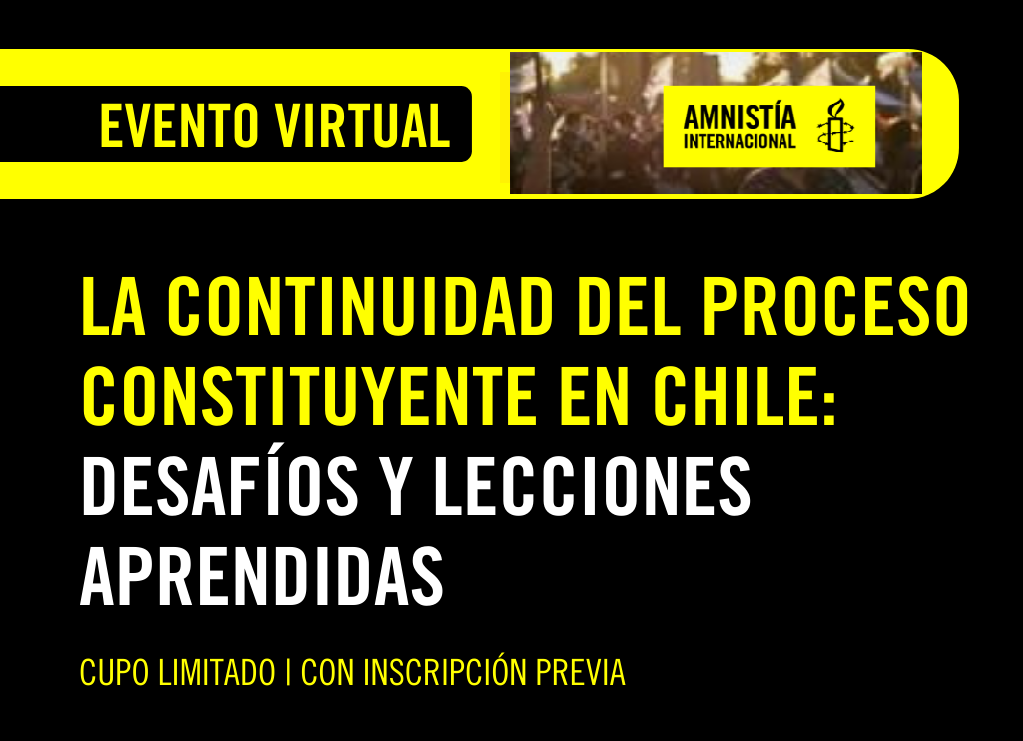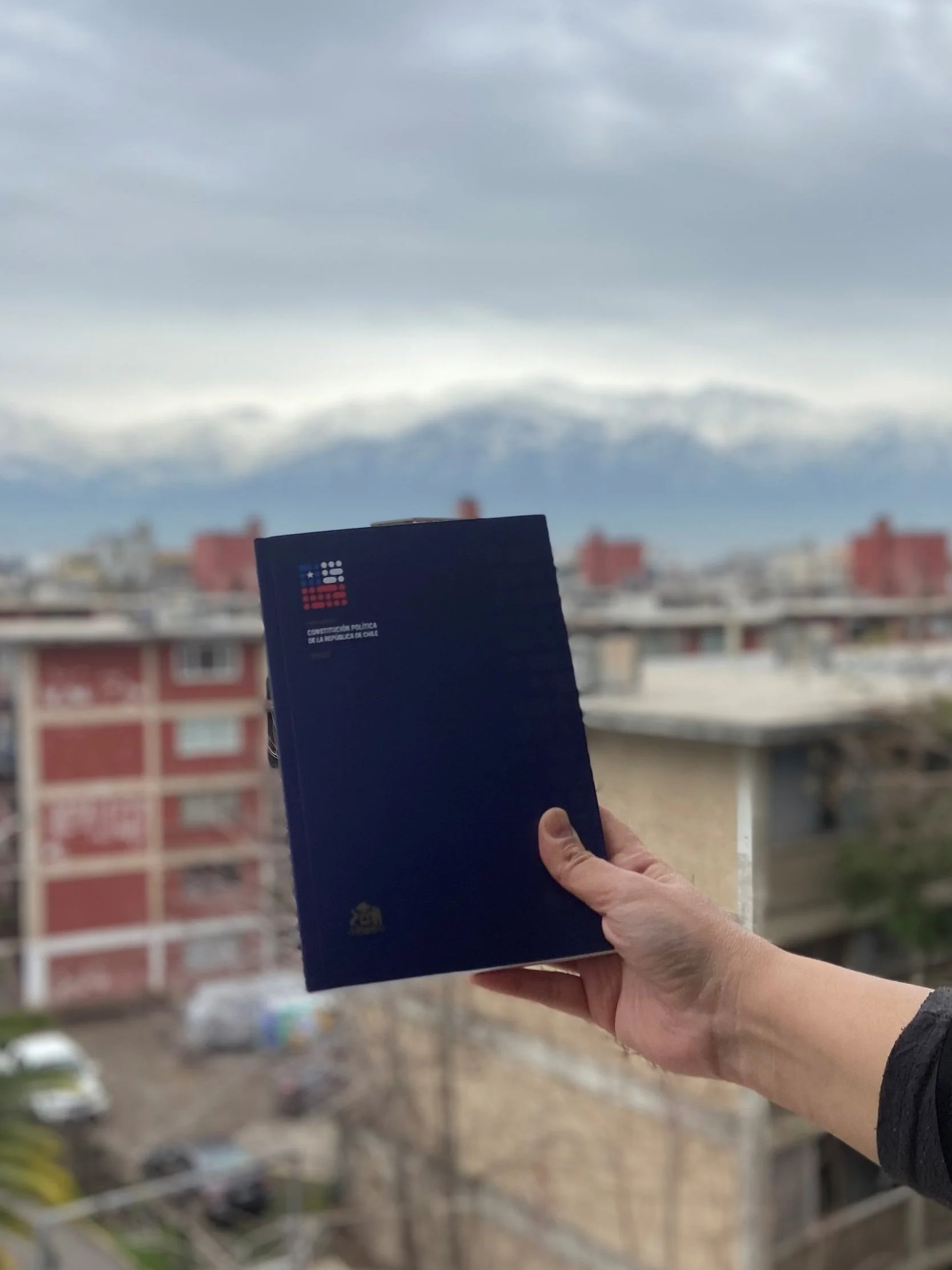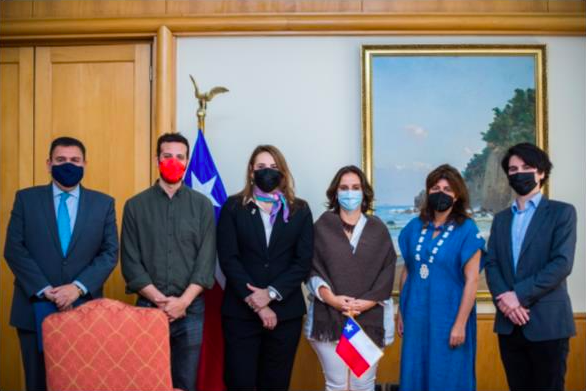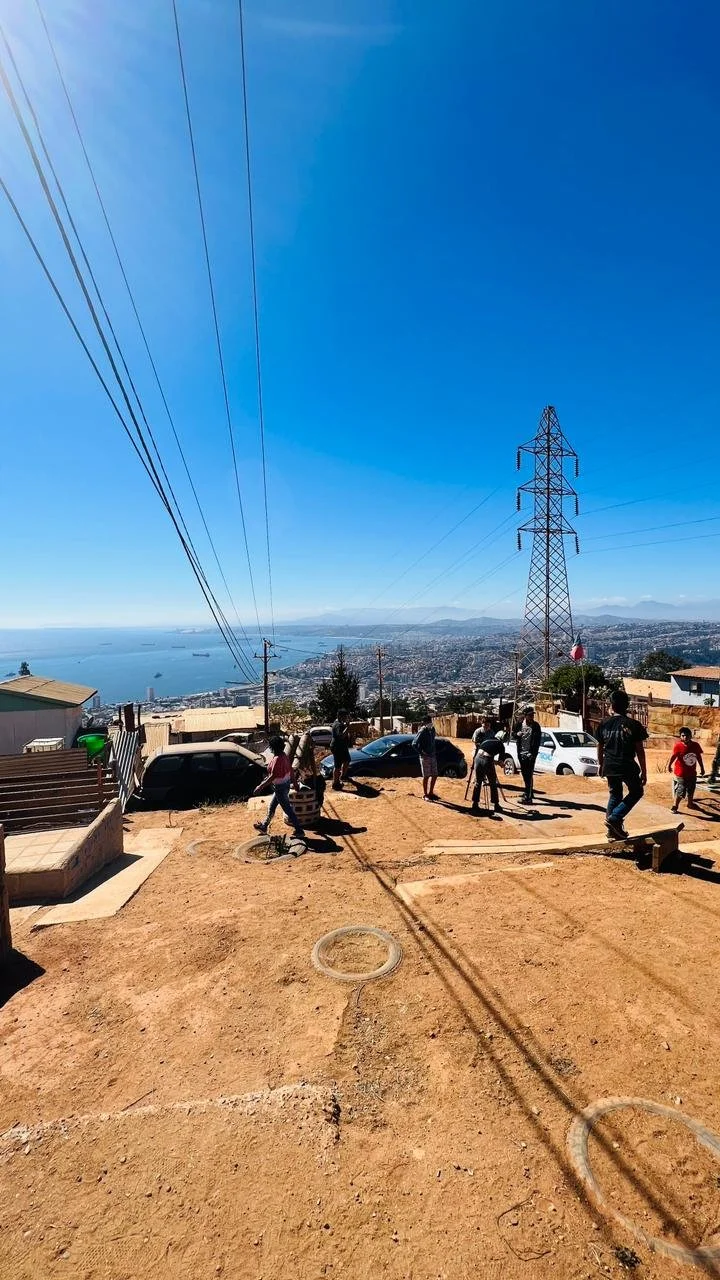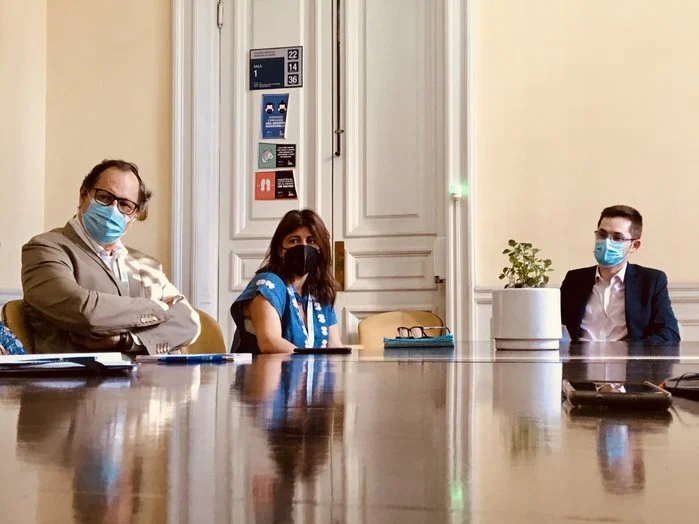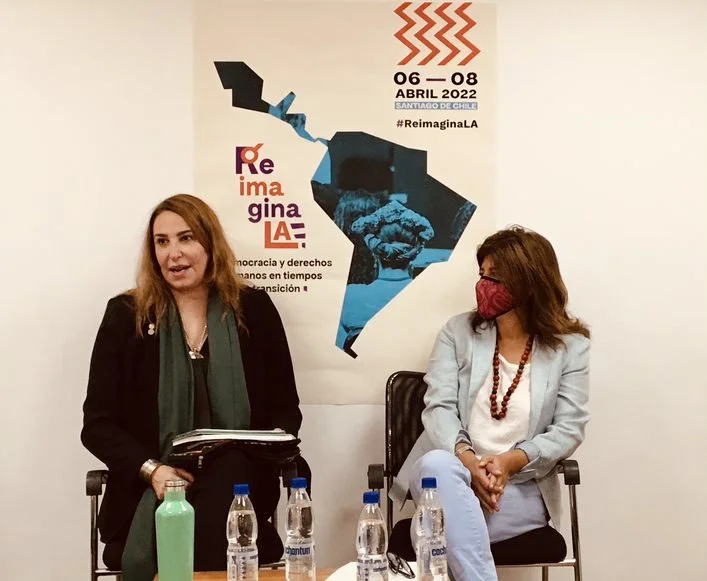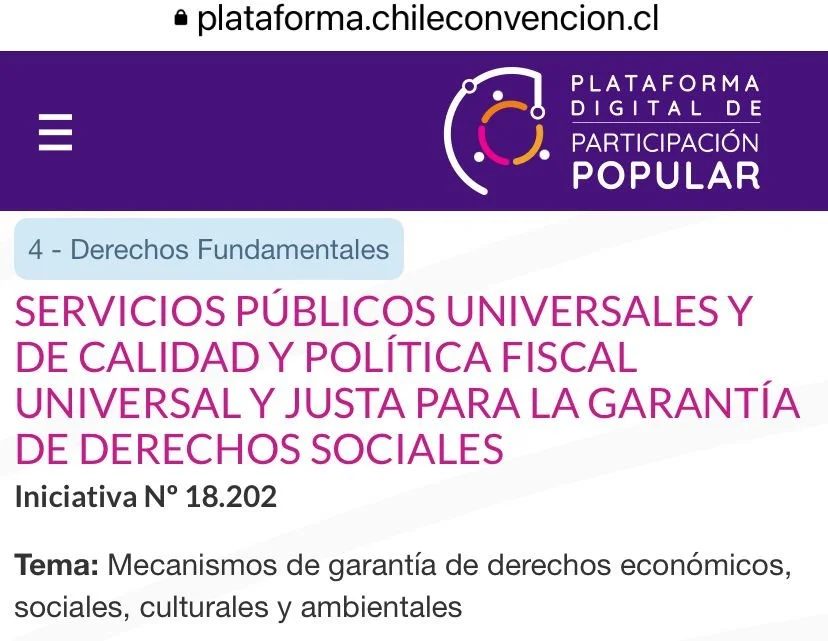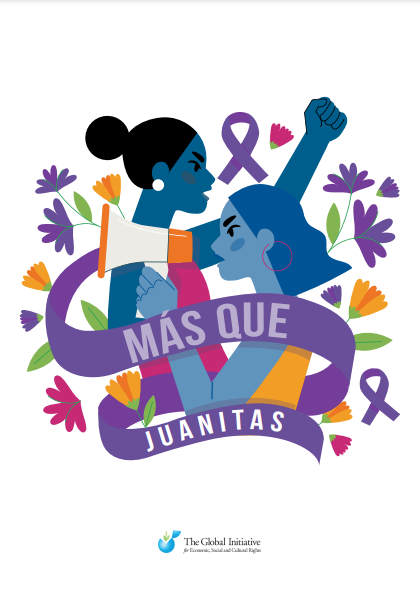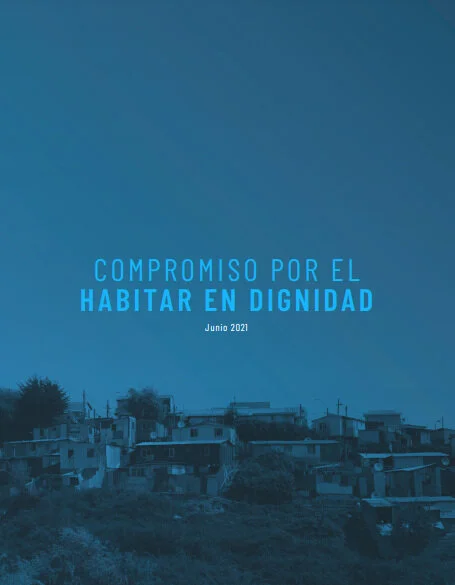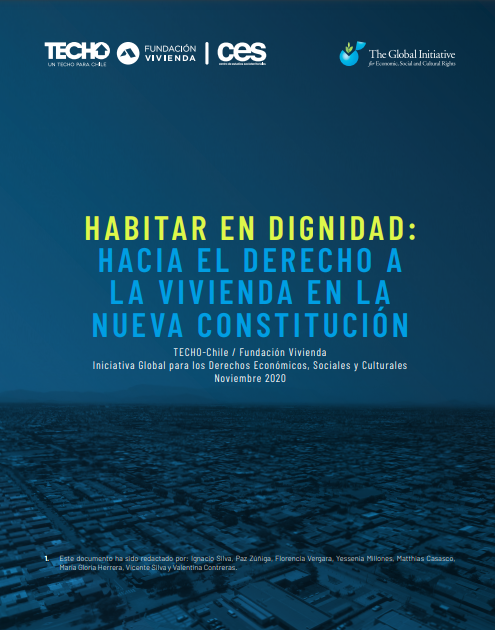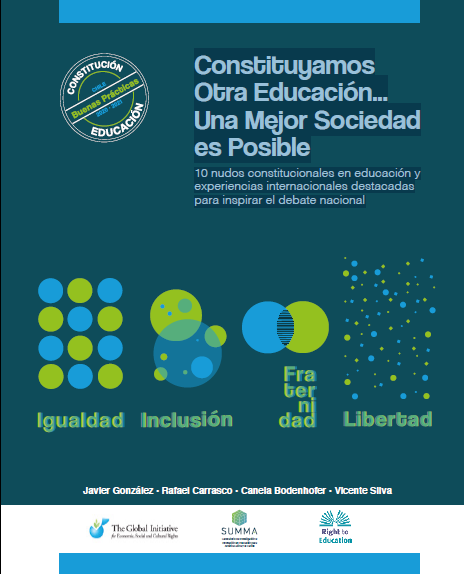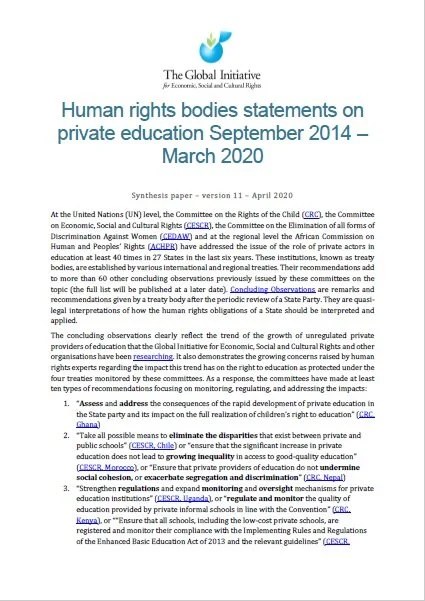GI-ESCR’s action in Chile aims to promote rights-respecting, gender inclusive and climate-sensitive alternatives for Chile’s constitutional process and economic policy debates.
GI-ESCR uses international experience in other human rights and feminist frameworks to provide technical assistance to Chilean partners and help them influence discussions on the new constitution.
GI-ESCR works together with partners on the ground to encourage the exchange of experiences in social and economic policies between Chile and international actors. That reciprocity helps Chilean partners push for a rights-respecting, gender-inclusive and climate-sensitive agenda.
These are the initiatives We have developed so far to promote economic and social rights, in alliance with civil society organizations at the local, national and global levels.
-
The Constitution is Our (LCeN) is an open and collaborative platform that seeks to claim citizen power. Our goal is to make proposals visible and connect with the work of the Constituent Constituents in Chile, so that together we can influence social rights and democratic strengthening. Read more.
-
Together with the Human Rights Center of the University of Essex and the Environmental Law and Climate Change Program of the University of Concepción, we seek to contribute new points of view and ideas that contribute to enriching the debate in the Constitutional Convention with arguments and proposals that strengthen the protection of economic, social, cultural and environmental rights. Global and local perspectives for the constitutional debate.
-
We developed an open and collaborative digital platform that allows connecting citizens’ proposals with the work of the Constitutional Convention. Social rights with a gender perspective in the new constitution.
-
Decisions about how the state collects and spends its resources must be oriented towards satisfying the social rights of the population. Read more about it.
-
Together with SUMMA (Laboratory for Research and Innovation in Education for Latin America and the Caribbean) and the Right to Education Initiative, the project seeks to promote the discussion on the best way to guarantee the right to education in the new Constitution.
-
We partnered with Ahora Nos Toca Participar, Avina Foundation and Plataforma Contexto to develop the cycle of talks "Social rights and the constituent process: (re) imagining the Chile of the XXI century". The gal is to generate spaces for dialogue and debate with inclusive participation from different sectors of society to reflect on the social pact that is dreamed of for the next decades in conjunction with different civil society organizations at the national and international level. Conversation cycle
-
This initiative aims to examine the constitutional experience in housing and the city based on the main urban-housing challenges of the country, the voice and gaze of local communities, international human rights standards and the comparative review of other constitutions to world level, to propose the normative bases of housing from a human rights perspective, facing the constituent discussion. Learn More
Issue
On 25th October 2020, Chileans were called to decide on the biggest change in the country since democracy was reestablished in 1990. They voted on a referendum that would determine the elaboration of a new constitution.
+ Read More
The majority of citizens voted in favour of a new constitution, a text that should reflect a new reality for a society still ruled until then by a constitution drafted under the 1973-1990 dictatorship of Augusto Pinochet.
The law should give voice to a society that last October took to the streets in massive rallies expressing anger and desperation nationwide. Nobody thought at that time that the rise in Santiago’s metro fare would cause such an outcome, but that was just the tip of the iceberg.
The extreme inequalities of the country led to this “Chilean awakening,” which achieved strong international support. The success around the globe of the anthem ‘A rapist in your path,’ performed by the feminist band Las Tesis, was proof.
Women, along with young generations and indigenous communities, are in fact one of the social groups that are most affected by inequality in Chile. Despite the image of prosperity of the country, a substantial proportion of the population has not benefited from economic progress.
It’s true that after three decades of stable growth, controlled inflation and falling poverty rates, Chile now has Latin America’s highest income per capita. But it remains the most unequal of the OECD countries, with an income gap that is about 65% higher than average.
Chile’s most disadvantaged people are struggling with high living costs, lack of social protection, low wages, and segregationist housing policies. In addition to this, the privatization of pensions and healthcare systems, and an underfunding of education, undermine opportunities for vulnerable groups.
That is the case of women, who suffer from lower wages and, therefore, lower pensions. The privatization of the education system has also led to social exclusion of girls from poorer families.
A feminist, more inclusive analysis of economic and social policies is necessary to ensure that the new constitution enables substantive gender equality and human rights in the country. In this context, it is crucial to support those groups who are demanding transformative changes.
The importance of the Chilean case transcends national boundaries because it is an example of how neoliberal policies and privatization of public services led to extreme inequality across the globe. That is why this would be a major victory not only for rights holders in Chile, but also in many other countries.
Our Approach
GI-ESCR focuses on informing and influencing debates on the new constitution from the perspective of gender, economic, social, and cultural rights.
+ Read More
The goal is to achieve better management of public services – particularly education, health, water and sanitation, and social security. We support and collaborate with feminist movements and organizations to ensure that women’s rights are placed at the center of the public agenda in the constitutional discussions.
In collaboration with partners, GI-ESCR elaborates and distributes technical briefings and advocacy materials to raise awareness of economic inequality and the negative impact of certain public policies on women’s rights.
We also use international human rights and gender equality processes to promote gender-inclusive and climate sensitive solutions.
To increase global scrutiny on Chile and pressure the national government and other institutions, GI-ESCR advocates in regional and international rights spaces to amplify citizen demands, in particular from women and groups traditionally excluded from national debates.
Latest news
Publications
Media Coverage
See here overall media coverage to our project in Chile



